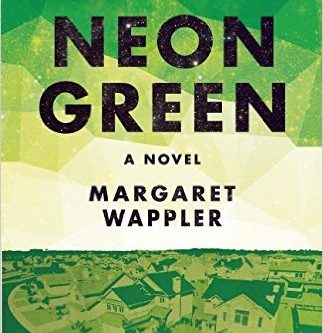 Blood on Blood, by Devin Kelly
Blood on Blood, by Devin Kelly
There is an awkward, uncomfortable history of politicians seeking to utilize the work of Bruce Springsteen to rally support during their campaigns. Most notable was Ronald Reagan, most recent was Chris Christie, and in many cases it seems to stem either from misunderstanding the work of “The Boss” or not caring to examine anything beyond the title “Born in the USA”. We live in a time in which ideals and ideologies, including masculinity and patriotism, have finally, if begrudgingly, been subjected to open questioning. Our celebrities are flawed (shocker) and our romanticizations of our past don’t hold up. Springsteen’s music has been, with varying levels of success, celebratory of what it means to be an American and to be a man. But times change. Devin Kelly’s poetry collection, Blood on Blood, takes the music of the icon, breaks it down, and remakes it into something no less powerful. Perhaps even more so. The result is a fascinating exercise in examining the inescapable and yet nebulous relationships between people and the power of their subjective realities.
Even without the subtitle “A Reimagining of Bruce Springsteen’s Nebraska”, it is thoroughly apparent what Springsteen’s music means to Kelly. From titles to specific lines of poetry, Blood on Blood uses the album Nebraska as its jumping off point to dive into the same issues that Springsteen has addressed throughout his career. But the key to the subtitle is the word “reimagining”; what it means to be a man, to be a patriot, and to advocate for the disenfranchised, have evolved, especially by becoming less and less monochromatic. Kelly’s poetry tackles fatherhood and brotherhood with an intimacy that such relationships are rarely allowed (and yet often possess).
…Nothing exists
but time & what it does to you, how you
can’t help but notice the melanoma
spotting up your father’s hands, how hesometimes has to wear gloves to keep
the sun from killing him. Forget about
all of that & try to imagine a lifewithout the need to be by his side.
You have his handprint decorating
the thin room of your skin.
This is the eternal question of legacy, of life and death, of coming to terms with the dimension of time and its momentum. This is the voice of a son who is compelled to refuse “weakness”, to deny the very existence of fear (and perhaps compassion), and attempt to honor his father by worrying in silence, likely the same father who taught him such values in the first place. The deep roots of traditionally masculine behavior are being tripped over, even pulled at and torn, as they lay in the path of a human connection.
When a mind undergoes a perspective shift, it is impossible to keep that change localized. The same complications that arise in the face of old masculinity also rear their heads when confronted by what it means to be American, both in Springsteen’s songs, and particularly in Kelly’s poetry. In poems such as “Middle America” and “Frank Drives North on 385 Toward Chadron”, Kelly raises what one can euphemistically call the complicated legacy of the United States and treats it with the same confusion and yearning that he does for the perspective of son and brother.
It began with a river & its crossing,
a whisker of grain pulled out of a deadboy’s mouth, fur strung tight & propped
with bone. A gunshot, a silence,& another.
…They say gold,
but all I see is the play of sun on rust,
old Chevy’s stacked into a Stonehenge
made of rusted metal & the whims of old men.
The use of imagery here is beautiful and fascinating. In the first quote, the callbacks to “Manifest Destiny” and the rampant racial violence that birthed and forged the nation are echoed through time, a cycle that repeats itself as gunshots and silence. In the second quote, the images are supposed to subvert the supposed beauty of gold, but paradoxically they themselves are beautiful and tragic. Should the fact that the “whims of old men” now compose ruins be lamented or celebrated? The speaker seems to feel both, as I think we should. The title of this collection, Blood on Blood, now takes on meanings that Springsteen likely never imagined when he wrote the phrase into his song. Is this the blood that bonds families and friends, or is it the blood of a seemingly endless cycle of war and abuse? Are the two mutually exclusive?
This collection is full of beautiful and tragic vistas, and perhaps its strongest attribute is its willingness to confront both. While I am hesitant to use such a descriptor, I feel compelled to describe Blood on Blood as very “American”. I don’t mean to say, by any means, that the collection encompasses what it means to be from the United States, or that the collection holds some abstract quality vital to the definition. But it is very much the product of a perspective that has opened the floodgates to its past, refusing to look away, determined to witness the bad and to search for the dreams of what could be. There is guilt and there is hope, two qualities that seem alarmingly rare in an environment where fear and excuses fill the void. In this, I think Kelly actually exceeds his inspiration for this collection, both in ambition and in success. Blood on Blood possesses a humility and a consistent strength in baring its vulnerabilities, setting itself apart from so much else that is described as “colloquially American”.
Blood on Blood is available now through Unknown Press.



